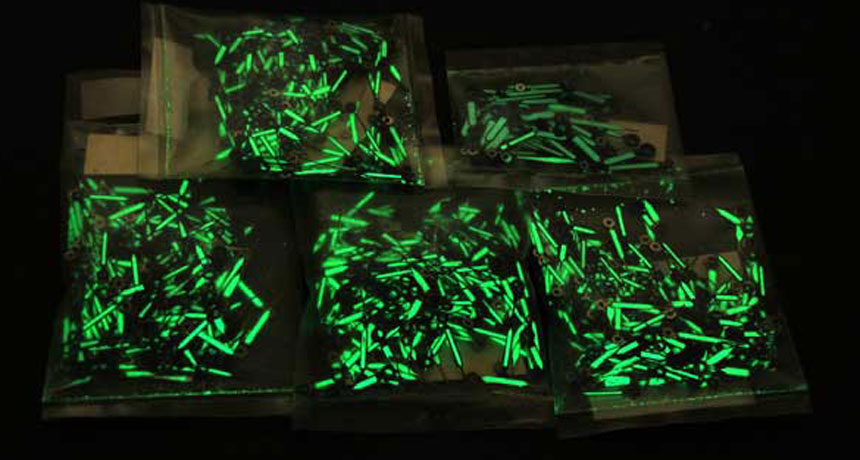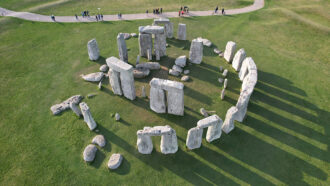Scientists Say: Radioactive
This word describes elements that shed energy over time

These watch hands are glowing because they have been painted with radium. Radium is a radioactive element, which gives off energy that causes nearby zinc sulfide to glow green.
Mauswiesel/Wikimedia Commons/ (CC BY-SA 3.0)







